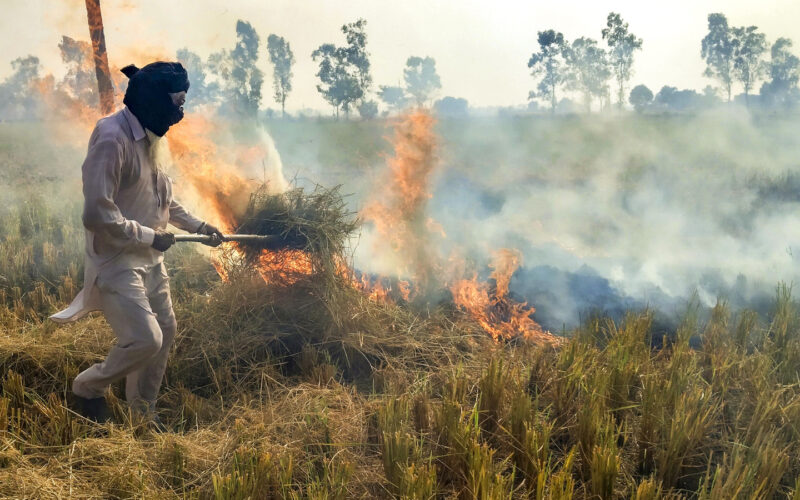Mohali (National Times): In a pioneering step aimed at reducing air pollution and transforming agricultural residue into renewable industrial fuel, the Punjab government has unveiled a capital subsidy scheme for industries installing paddy straw-fired boilers. This initiative marks a vital convergence of agricultural reform, industrial modernization, and environmental stewardship.
The new incentive, introduced through an amendment to the Industrial and Business Development Policy 2022, was formally announced by Industry Minister Tarunpreet Singh Sond during a press conference at Punjab Bhawan. “We are tackling stubble burning at its root—by giving crop residue economic value and making it a viable industrial fuel,” he said.
Industries using coal or oil can now receive up to Rs 1 crore per 8-tonne-per-hour (TPH) boiler, or 33% of installation cost, whichever is lower. Existing units converting to straw-based systems are eligible for Rs 50 lakh per 8 TPH, subject to a Rs 2.5 crore ceiling. The scheme, Sond emphasized, includes proportionate funding for larger boiler systems.
With Ludhiana’s dense industrial landscape expected to benefit the most, officials project between 500 and 600 units may adopt this cleaner energy alternative. The Punjab government has earmarked Rs 60 crore to support this rollout in its initial phase.
Additionally, companies will enjoy stamp duty waivers for land used to store paddy straw and can claim State GST reimbursements for seven years—covering up to 75% of their total capital investment.
To qualify, firms must present a Consent to Establish certificate issued after February 20, 2025, by the Punjab Pollution Control Board. Importantly, the program is open only to existing businesses for now, and participation is based on first-come, first-served criteria.
“This is about creating a cycle of sustainability,” Sond added. “Farmers gain a new revenue stream. Industries reduce carbon emissions. And our air becomes cleaner.”
The government has stipulated that all beneficiaries must utilize paddy straw in the subsidized boilers for at least five years, failing which the financial support will be subject to recovery.
This initiative not only addresses Punjab’s recurring post-harvest pollution crisis but also positions the state as a leader in green industrial innovation. By incentivizing the use of farm residue as fuel, Punjab is paving the way for a cleaner and more inclusive economic future.

